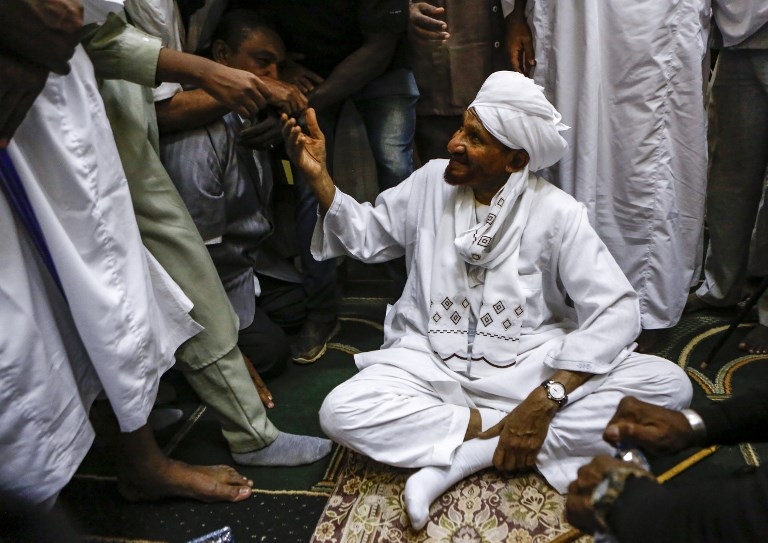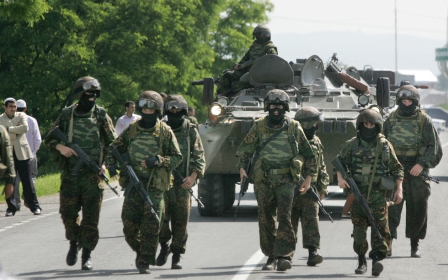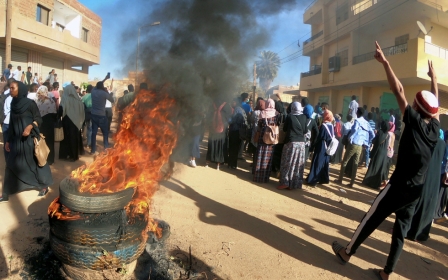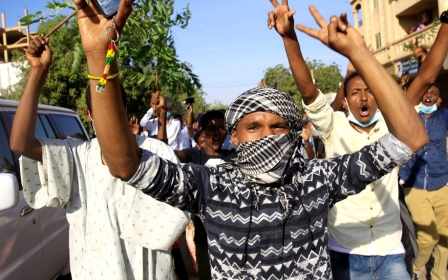Sudanese opposition leader backs protesters against Bashir

Sudan's opposition leader and former prime minister Sadig al-Mahdi on Friday backed protesters who have been calling for the end of President Omar al-Bashir's three-decade rule.
Mahdi called for his National Umma Party's supporters to join the protests, which reached a high-point on Thursday, and said he hoped to form a transitional government that would replace Bashir.
Activists have said the number killed since protests began on 19 December had risen to 51, which Mahdi also suggested in his speech at a mosque in the city of Omdurman, across the River Nile from the capital Khartoum. The government has said 30 people have been killed.
"A period of transition will come soon...we are supporting this movement," said Mahdi, whose government was toppled by Bashir in a 1989 coup.
He said he had signed an agreement with the Sudanese Professionals Association (SPA), which has been the organiser of regular protests in the capital Khartoum.
Protests continued through the night and there were clashes outside the home of Mahjoub al-Taj Mahjoub, a medical student who was one of at least two killed on Thursday.
According to the Sudanese Doctors' Committee, Mahjoub died after being "beaten and tortured" in police custody.
The SPA estimated that around 40 areas of Sudan protested on Thursday, making it the most widespread day of demonstration since 19 December.
The association published on Friday a daily agenda for protests and rallies for the coming week.
Mahdi returned from a year in exile on the same day protests started.
His comments on Friday marked the first major intervention by the Sudanese political opposition in protests that have largely been natural or organised by independent trade unions.
Human rights groups have criticised Sudan's use of force on protesters, including live fire and tear gas.
The demonstrations across Sudan, while initially fuelled by anger over a hike in living costs, quickly morphed into protests against the government and are seen as the biggest threat to President Omar al-Bashir's rule since he took power in a 1989 coup.
A hike in the price of bread brought demonstrators onto the streets in the northeastern city of Atbara on 19 December, where protesters burned down the ruling party's local offices.
The protests then rapidly spread to the capital Khartoum and other big cities as people vented their anger against the government.
The demonstrations come with Sudan battling an economic crisis driven by soaring inflation and a shortage of foreign currency.
Bashir, 75, has remained defiant and rejected the calls to step down. He has blamed the violence on "infiltrators" among the protesters.
The veteran leader has accused the United States of causing Sudan's economic woes, but his words have fallen on increasingly deaf ears as people have struggled to buy even basic foods and medicines.
The United States imposed a trade embargo on Sudan in 1997, and it was lifted only in October 2017.
Middle East Eye propose une couverture et une analyse indépendantes et incomparables du Moyen-Orient, de l’Afrique du Nord et d’autres régions du monde. Pour en savoir plus sur la reprise de ce contenu et les frais qui s’appliquent, veuillez remplir ce formulaire [en anglais]. Pour en savoir plus sur MEE, cliquez ici [en anglais].




